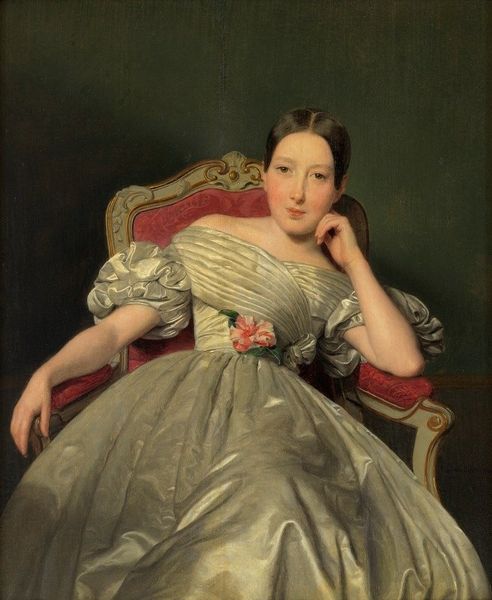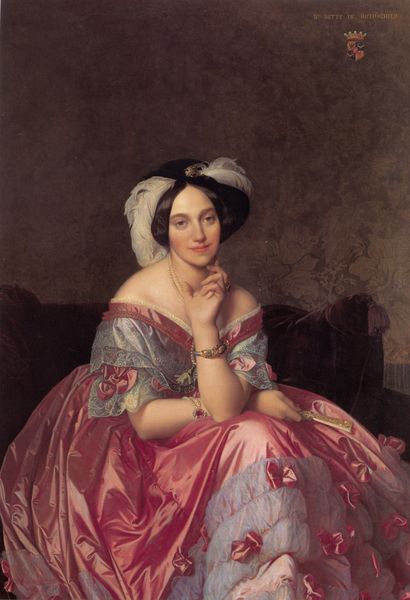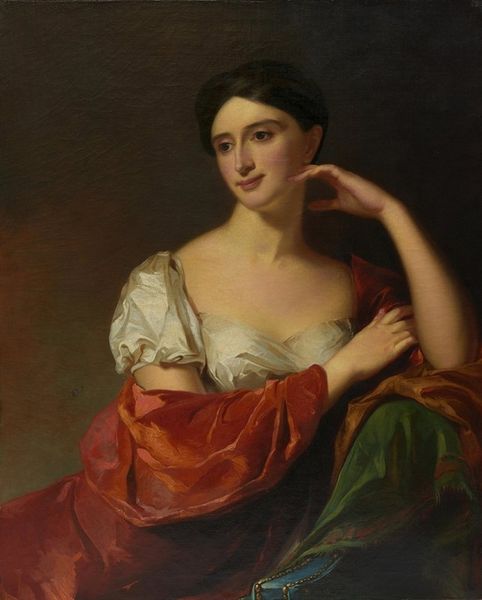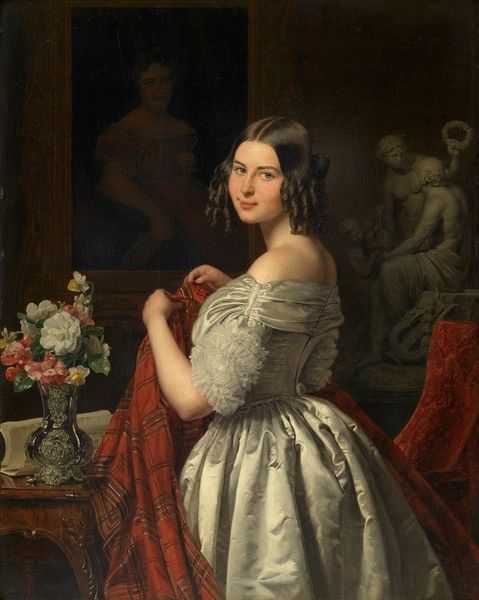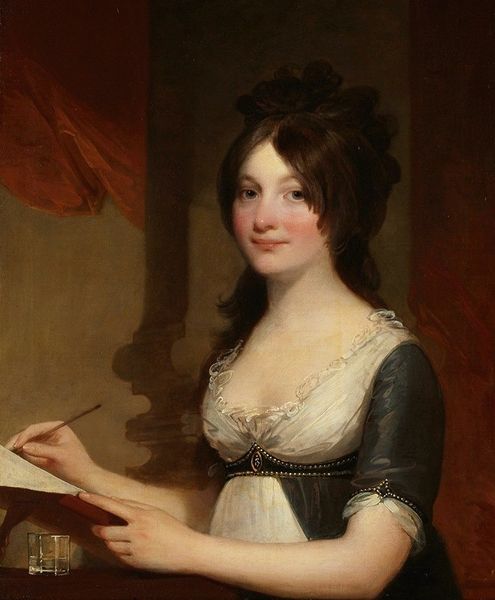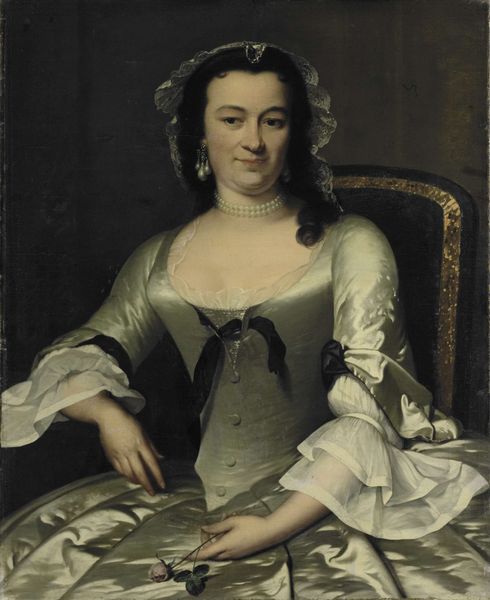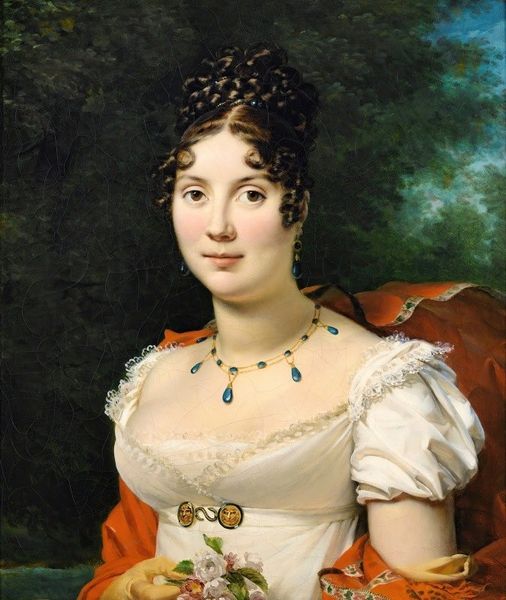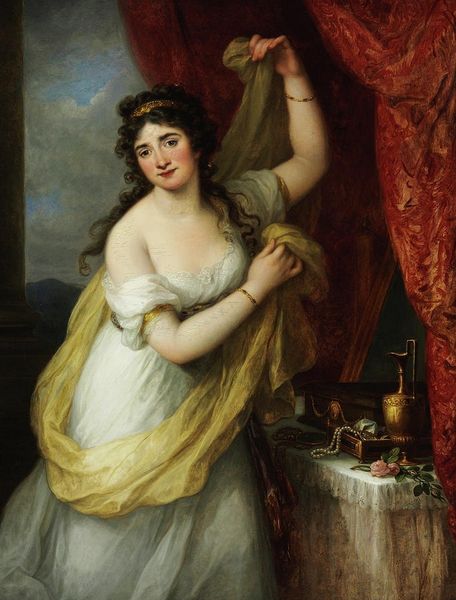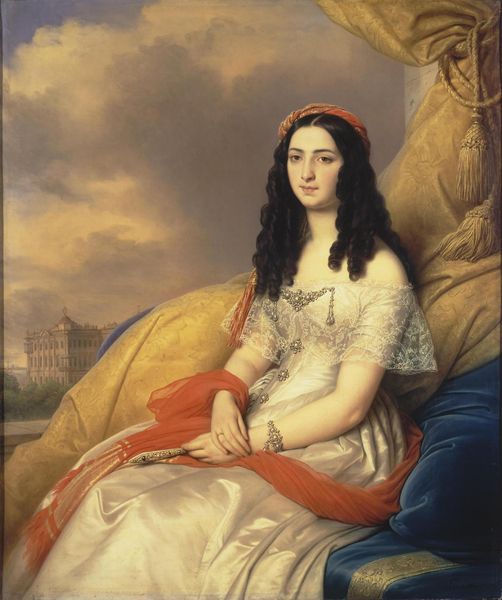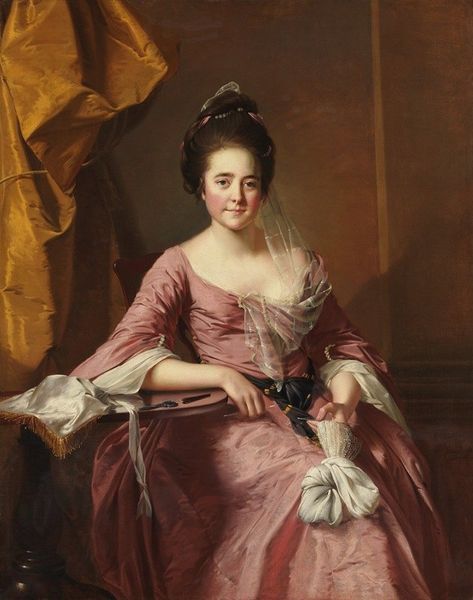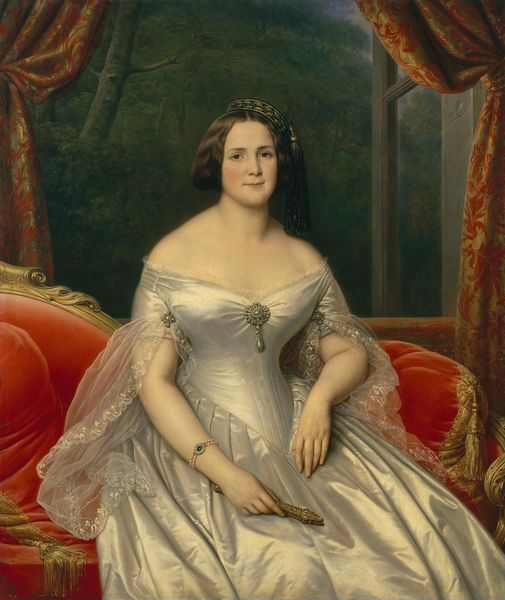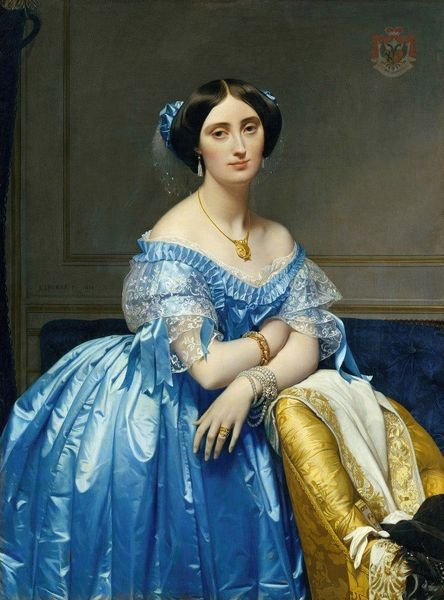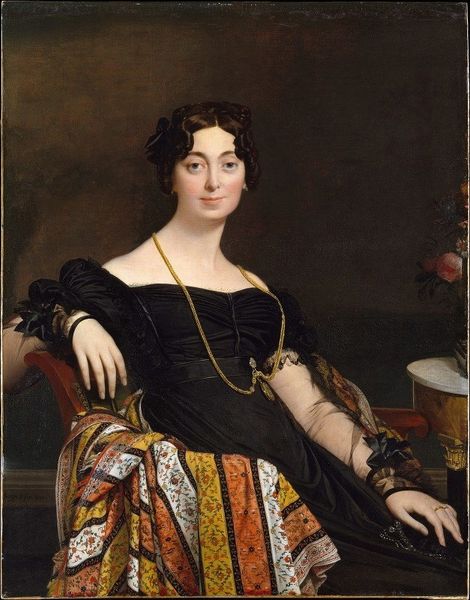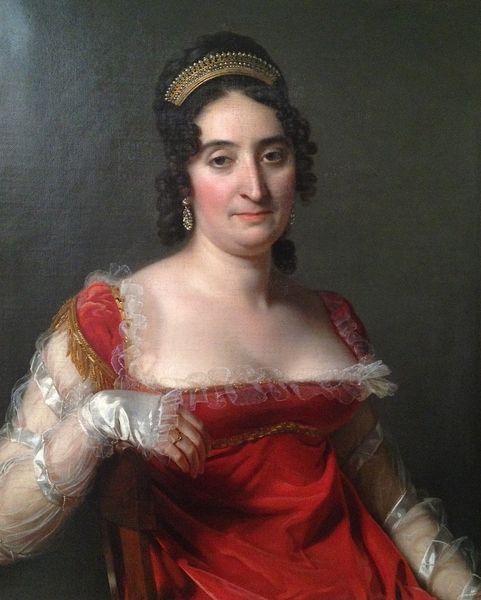
oil-paint
#
portrait
#
character portrait
#
oil-paint
#
romanticism
#
genre-painting
Copyright: Public domain
Miklos Barabas's painting, "Pigeon-Post," now at the Hungarian National Museum, offers a glimpse into 19th-century European society, where gender roles and communication were rapidly evolving. In this work, a young woman cradles a white pigeon, presumably entrusted with delivering a message. The act of sending messages by pigeon underscores a yearning for connection. Who is she writing to and why can’t she deliver the message herself? She is literally at the window, looking out and hoping for connection. Consider the period in which Barabas lived and worked; the rise of Romanticism, and the restrictions placed on women's expression. This painting encapsulates both a quiet domesticity and a subtle rebellion against confinement. It also shows a dependence on animals to achieve humanly endeavors. It reminds us that throughout history women and animals alike have born the burden of messages. "Pigeon-Post" reflects the delicate balance between tradition and change, inviting us to consider the silent stories of women who sought connection and agency in a world on the brink of transformation.
Comments
No comments
Be the first to comment and join the conversation on the ultimate creative platform.
